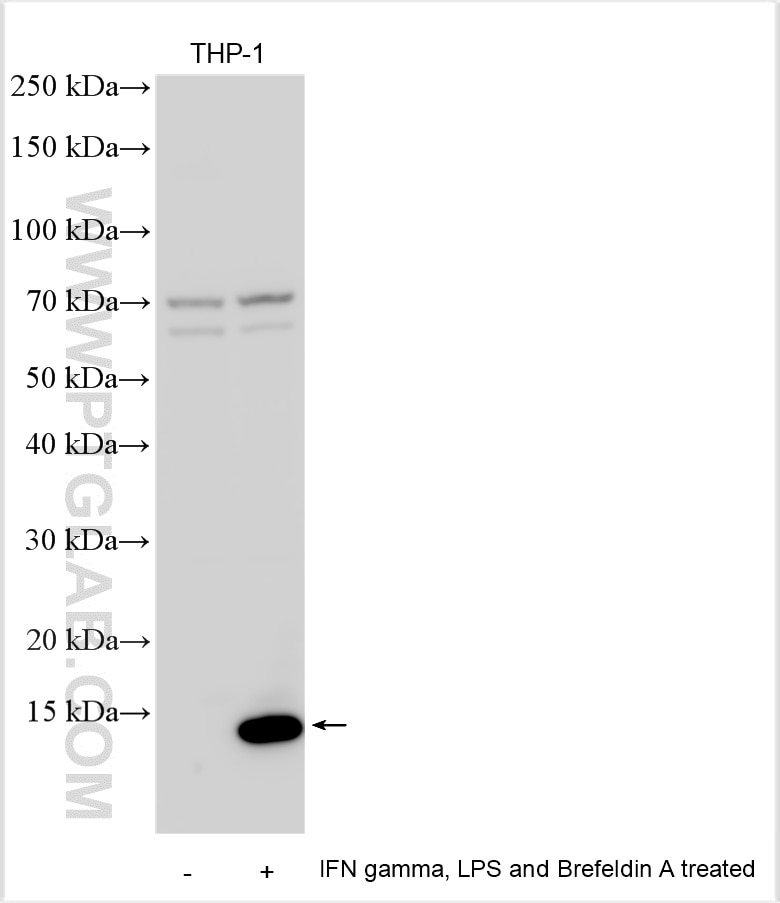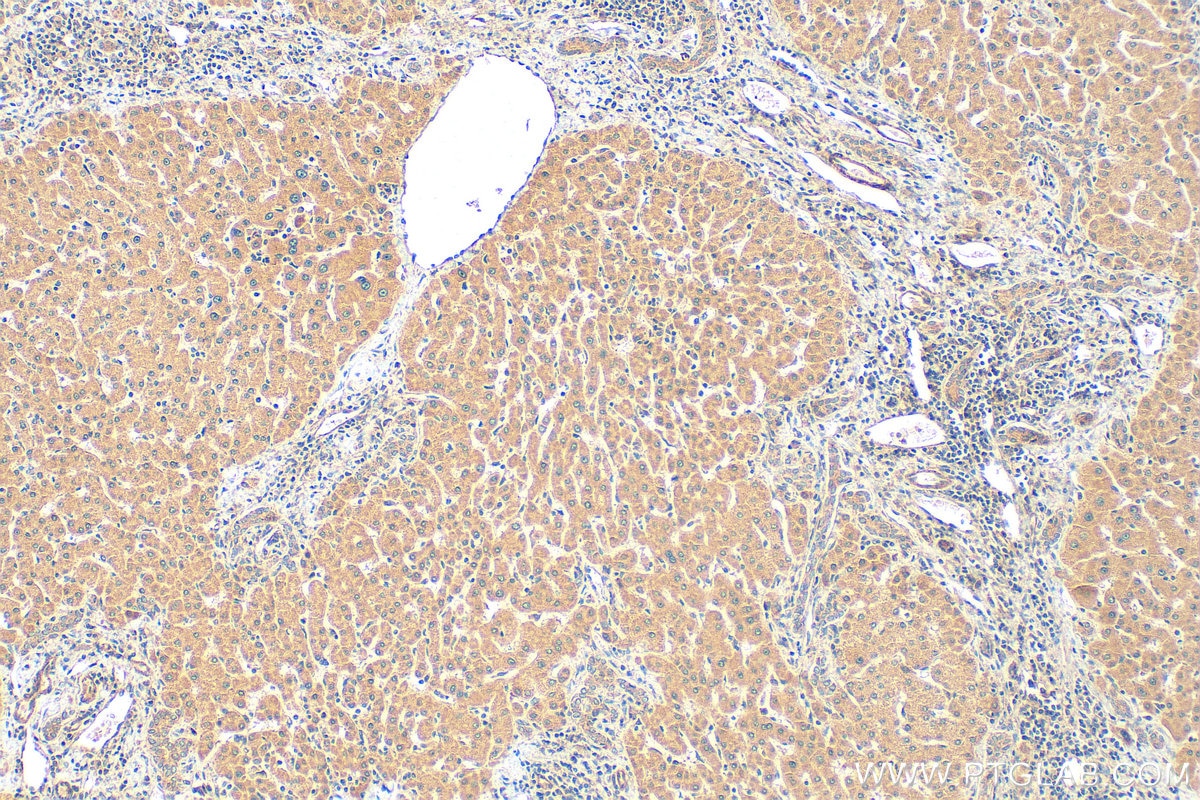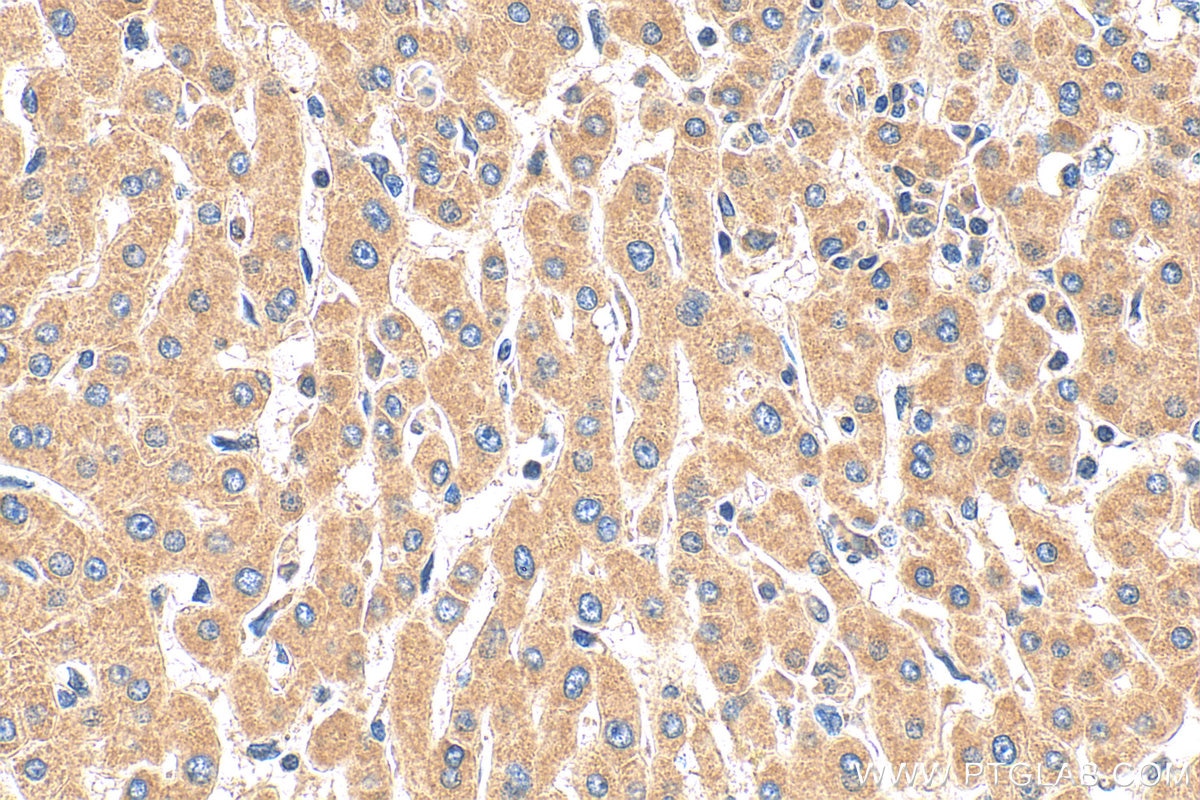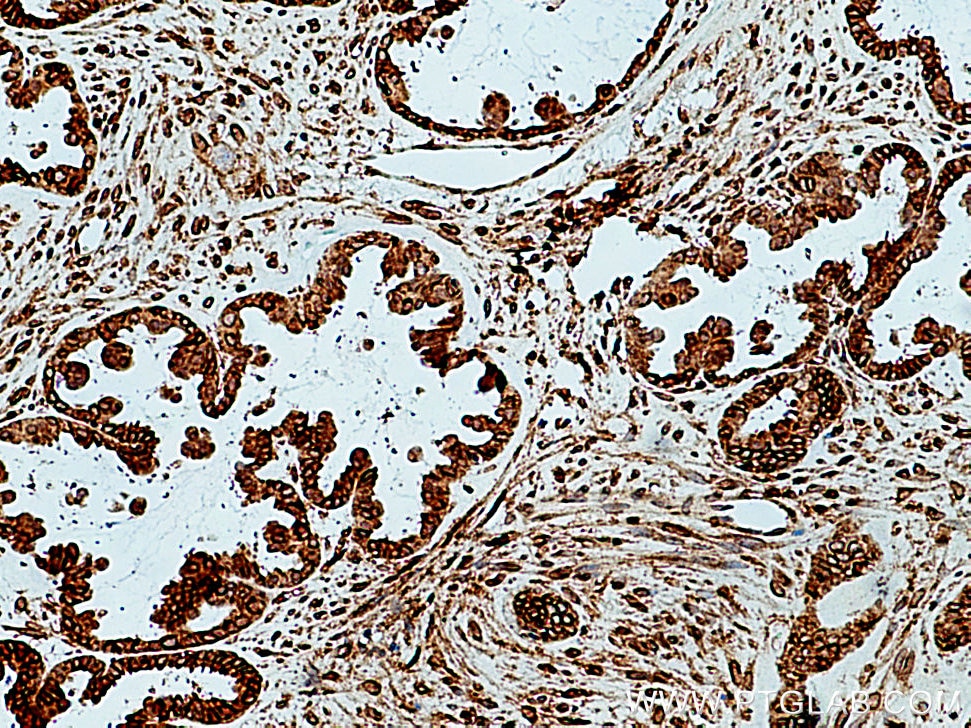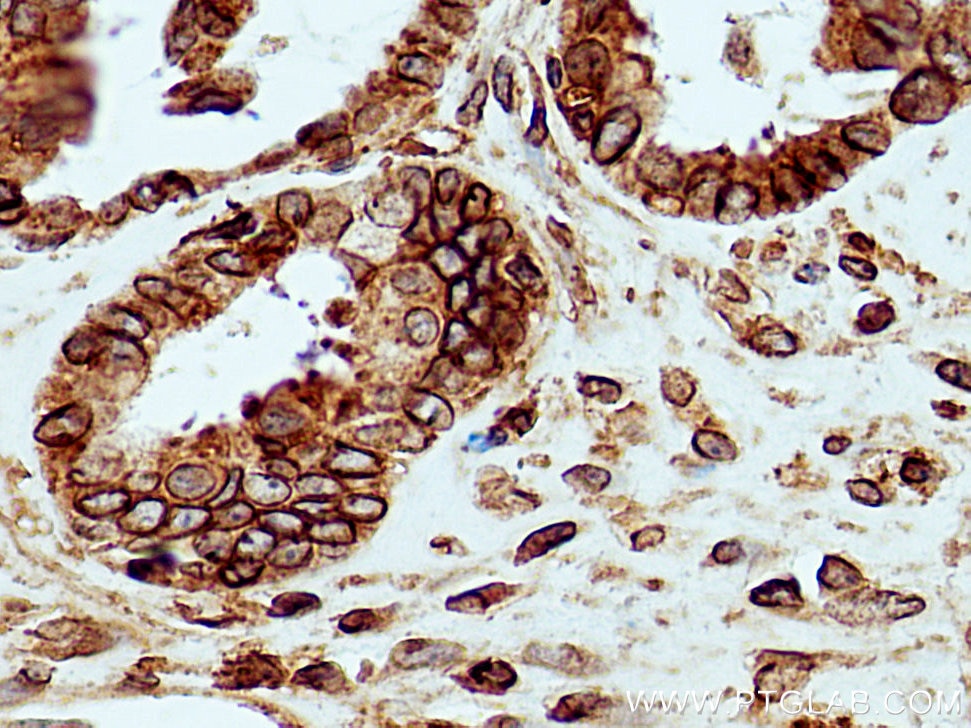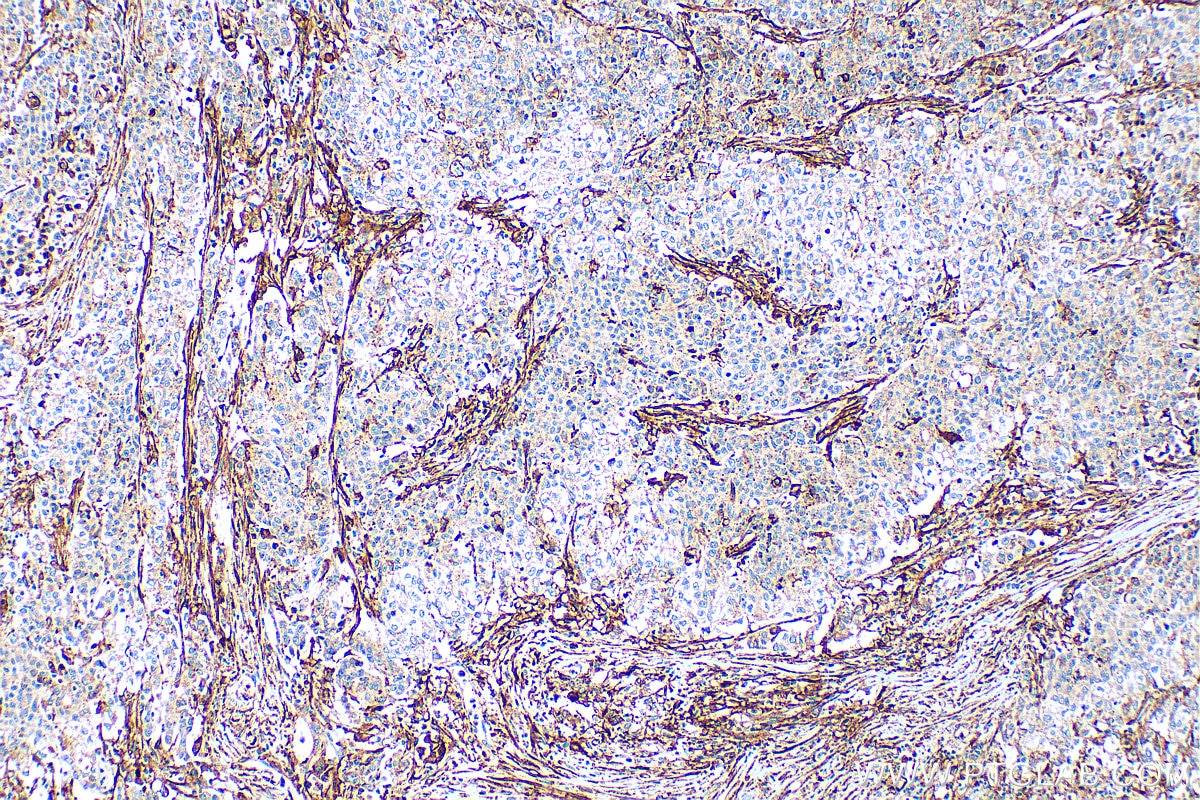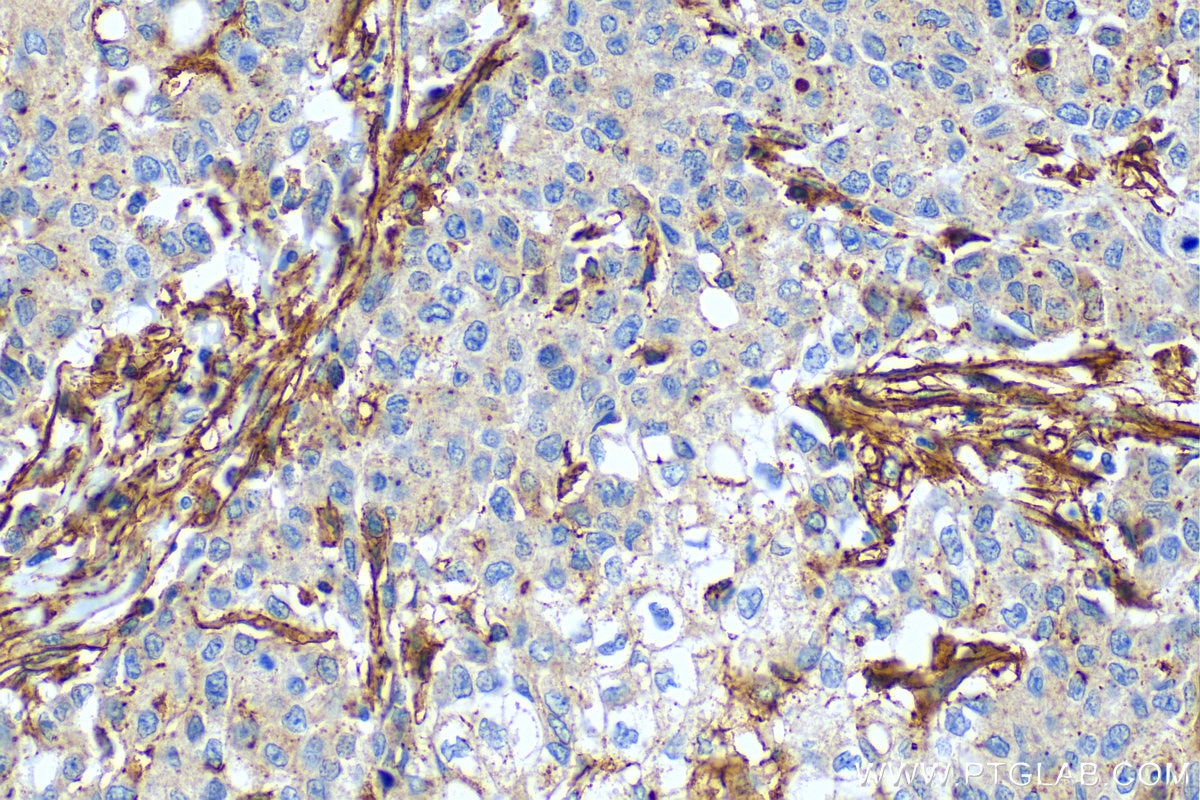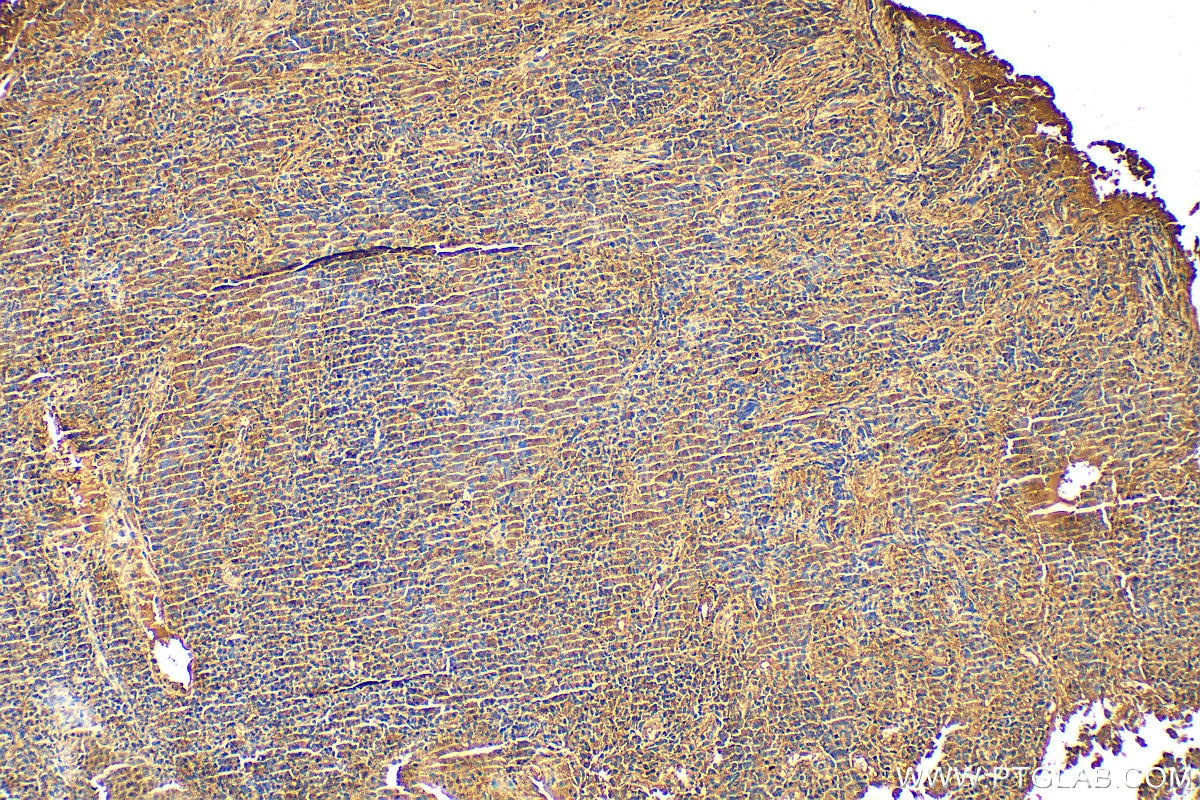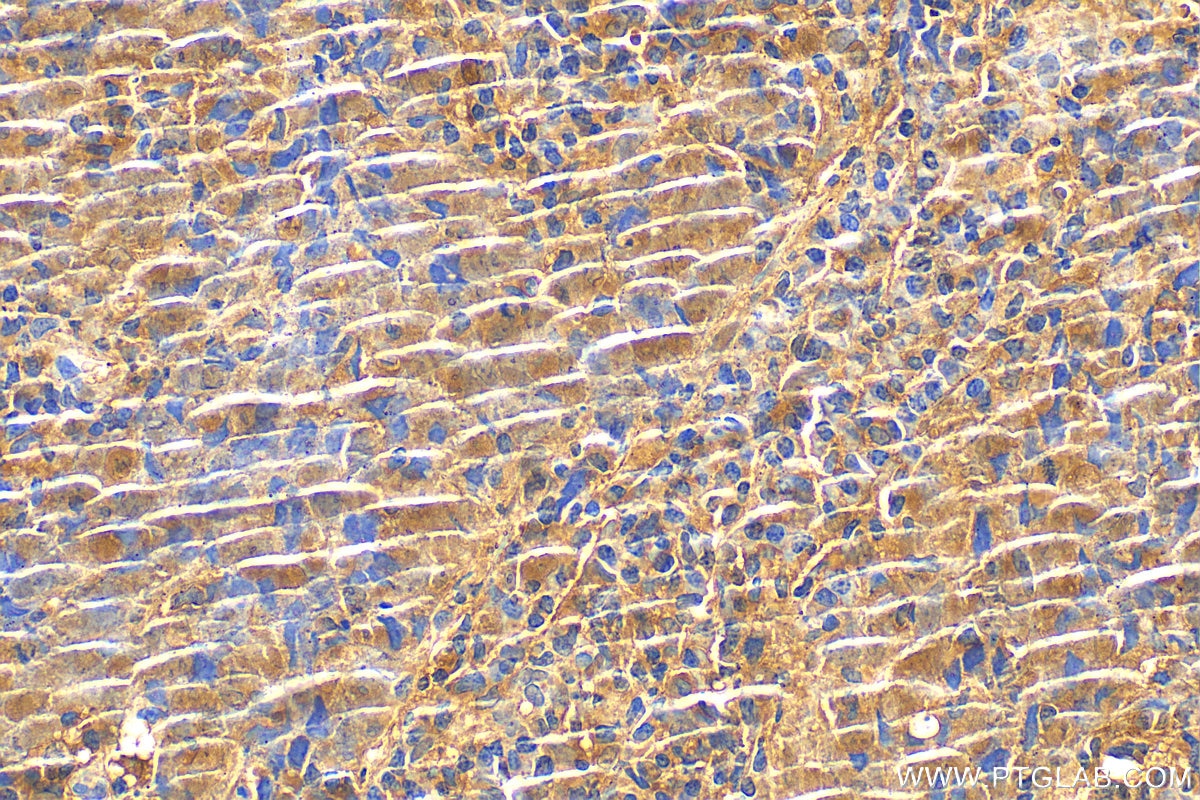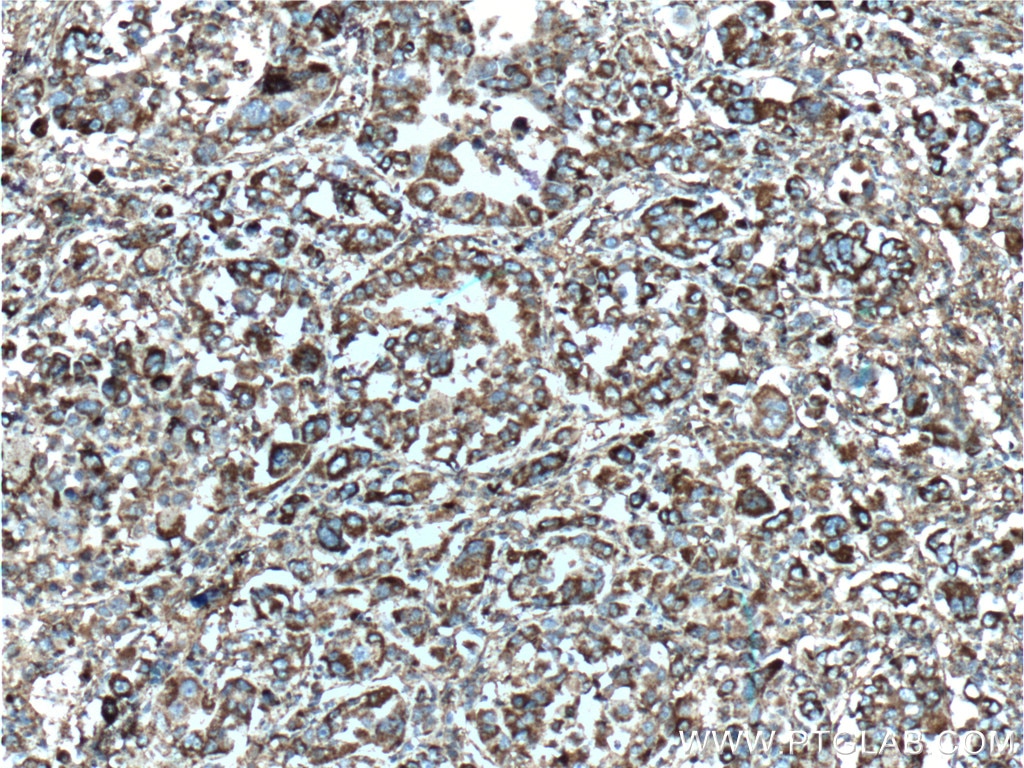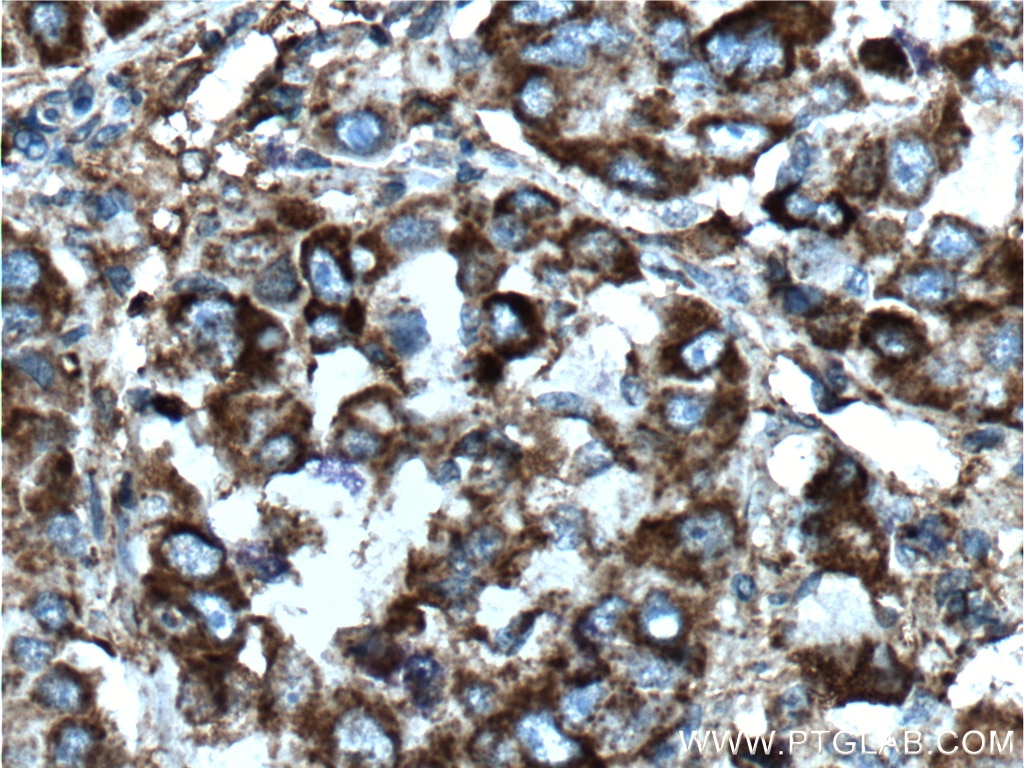- Phare
- Validé par KD/KO
Anticorps Polyclonal de lapin anti-CXCL10/IP-10
CXCL10/IP-10 Polyclonal Antibody for WB, IHC, ELISA
Hôte / Isotype
Lapin / IgG
Réactivité testée
Humain et plus (2)
Applications
WB, IHC, IF, ELISA
Conjugaison
Non conjugué
N° de cat : 10937-1-AP
Synonymes
Galerie de données de validation
Applications testées
| Résultats positifs en WB | IFN gamma, LPS and Brefeldin A treated THP-1 cells, |
| Résultats positifs en IHC | tissu de cirrhose hépatique humain, tissu de cancer du foie humain, tissu de carcinome nasopharyngé humain, tissu de tumeur ovarienne humain il est suggéré de démasquer l'antigène avec un tampon de TE buffer pH 9.0; (*) À défaut, 'le démasquage de l'antigène peut être 'effectué avec un tampon citrate pH 6,0. |
Dilution recommandée
| Application | Dilution |
|---|---|
| Western Blot (WB) | WB : 1:500-1:2000 |
| Immunohistochimie (IHC) | IHC : 1:200-1:800 |
| It is recommended that this reagent should be titrated in each testing system to obtain optimal results. | |
| Sample-dependent, check data in validation data gallery | |
Applications publiées
| KD/KO | See 2 publications below |
| WB | See 17 publications below |
| IHC | See 30 publications below |
| IF | See 11 publications below |
Informations sur le produit
10937-1-AP cible CXCL10/IP-10 dans les applications de WB, IHC, IF, ELISA et montre une réactivité avec des échantillons Humain
| Réactivité | Humain |
| Réactivité citée | rat, Humain, souris |
| Hôte / Isotype | Lapin / IgG |
| Clonalité | Polyclonal |
| Type | Anticorps |
| Immunogène | CXCL10/IP-10 Protéine recombinante Ag1369 |
| Nom complet | chemokine (C-X-C motif) ligand 10 |
| Masse moléculaire calculée | 11 kDa |
| Poids moléculaire observé | 11 kDa |
| Numéro d’acquisition GenBank | BC010954 |
| Symbole du gène | CXCL10 |
| Identification du gène (NCBI) | 3627 |
| Conjugaison | Non conjugué |
| Forme | Liquide |
| Méthode de purification | Purification par affinité contre l'antigène |
| Tampon de stockage | PBS with 0.02% sodium azide and 50% glycerol |
| Conditions de stockage | Stocker à -20°C. Stable pendant un an après l'expédition. L'aliquotage n'est pas nécessaire pour le stockage à -20oC Les 20ul contiennent 0,1% de BSA. |
Informations générales
CXCL10 (also known as IP-10) is a member of the CXC chemokine family which binds to the CXCR3 receptor to exert its biological effects. CXCL10 is a 12-kDa protein and constitutes two internal disulfide cross bridges. The predicted signal peptidase cleavage generates a 10-kDa secreted polypeptide with four conserved cysteine residues in the N-terminal. The CXCL10 gene localizes on chromosome 4 at band q21, a locus associated with an acute monocytic/B-lymphocyte lineage leukemia exhibiting translocation of t (4; 11) (q21; q23). CXCL10 mediates leukocyte trafficking, adaptive immunity, inflammation, haematopoiesis and angiogenesis. Under proinflammatory conditions CXCL10 is secreted from a variety of cells, such as leukocytes, activated neutrophils, eosinophils, monocytes, epithelial cells, endothelial cells, stromal cells (fibroblasts) and keratinocytes in response to IFN-γ.
Protocole
| Product Specific Protocols | |
|---|---|
| WB protocol for CXCL10/IP-10 antibody 10937-1-AP | Download protocol |
| IHC protocol for CXCL10/IP-10 antibody 10937-1-AP | Download protocol |
| Standard Protocols | |
|---|---|
| Click here to view our Standard Protocols |
Publications
| Species | Application | Title |
|---|---|---|
Cancer Lett PARP inhibitor plus radiotherapy reshape the immune suppressive microenvironment and potentiate the efficacy of immune checkpoint inhibitors in tumors with IDH1 mutation | ||
J Mater Chem B Magnetic hyperthermia induces effective and genuine immunogenic tumor cell death with respect to exogenous heating | ||
Front Immunol LRPPRC facilitates tumor progression and immune evasion through upregulation of m6A modification of PD-L1 mRNA in hepatocellular carcinoma | ||
Cancer Commun (Lond) KRAS-G12D mutation drives immune suppression and the primary resistance of anti-PD-1/PD-L1 immunotherapy in non-small cell lung cancer. | ||
CNS Neurosci Ther Melatonin Alleviates Behavioral and Neurodevelopmental Abnormalities in Offspring Caused by Prenatal Stress | ||
Am J Cancer Res Identification of potential immune-related circRNA-miRNA-mRNA regulatory network in cutaneous squamous cell carcinoma |
Avis
The reviews below have been submitted by verified Proteintech customers who received an incentive for providing their feedback.
FH Federica (Verified Customer) (11-07-2023) | I used Alkaline Phospatase Dako kit and Antigen Retrival PH10
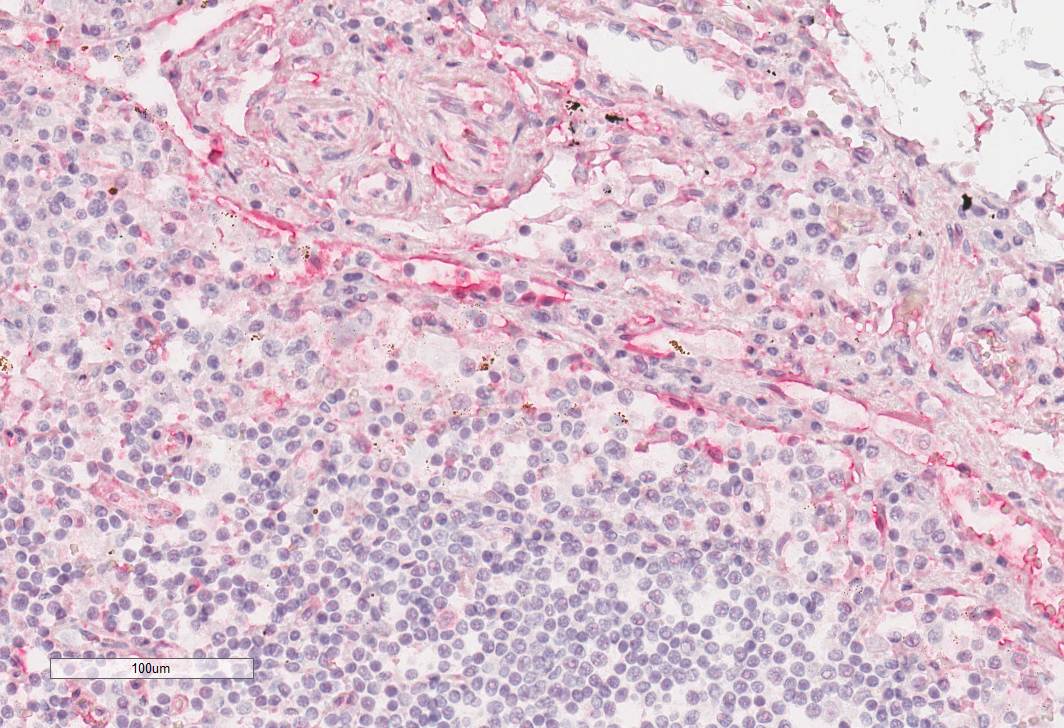 |
